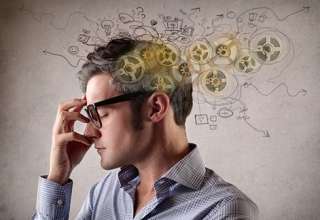
Attention-deficit hyperactivity disorder, or ADHD, is a behavioral health disorder that shows with symptoms such as impulsive actions, trouble concentrating, and comparative indications. Since ADHD initially starts in adolescence, its impacts on adults have frequently gone misdiagnosed. Read on to take in more about the causes and side effects of ADHD in children and adults, and in addition treatment modalities and lifestyle changes that can help settle the problems related with this condition.
ADHD Symptoms
The most widely recognized indications of childhood ADHD are gathered into three classifications: hyperactivity, impulsivity, and inattention. Hyperactivity symptoms may incorporate squirming, powerlessness to sit still, trouble playing unobtrusively, eagerness, and consistent talking. Children with impulsivity symptoms regularly intrude on others and may experience difficulty holding up or alternating. Inattention appearances of ADHD regularly incorporate distractibility, inconvenience following headings, trouble focusing, imprudent mix-ups, as often as possible losing individual things, and continuous staring off into space. A few children essentially encounter one of these side effect classifications, while others show a blend of indications from a few.
Since adult ADHD appears to be exceptionally unique than adolescence ADHD, it’s frequently undiagnosed–even in the individuals who were determined to have this condition as children. Adults with ADHD regularly encounter visit delay, uneasiness or wretchedness, low confidence, absent mindedness, inconvenience at work and school, inconvenience controlling feelings, substance manhandle, dawdling, tiredness, trouble concentrating, temperament swings, and relationship issues.
What Causes ADHD?
While specialists don’t yet know the correct reasons for ADHD, it’s idea to originate from a blend of warning factors including hereditary qualities, contrasts in the cerebrum among the individuals who have ADHD, concoction awkwardness, poor nourishment or substance mishandle amid pregnancy, untimely birth, low birth weight, mind damage, and introduction to poisons, for example, lead. As opposed to prevalent thinking, ADHD is not connected to sugar consumption, poor home life, food hypersensitivities, or a lot of TV time.
ADHD Diagnosis
On the off chance that you speculate that your child may have ADHD in light of the side effects depicted above, the initial step is to converse with his or her pediatrician. This condition can be analyzed either by an essential care specialist or a psychological health master. The human services proficient will talk about the side effects with you and additionally with your youngster’s educator and different guardians, and also watch his or her conduct in the workplace. The data assembled will be contrasted with the American Psychiatric Association’s Diagnostic and Statistical Manual, Fifth version (DSM-5) to decide if ADHD is available.
As per the DSM-5, children must have at least six inattention side effects exhibit for a half year or more, AND/OR at least six hyperactivity/impulsivity indications introduce for a half year or more. For adults (anybody more established than age 17), five or more symptoms from one or the two classifications must be available for no less than a half year. ADHD in children who are preschool age and more youthful can be hard to analyze; it’s vital to acquire a pro to guarantee that these symptoms are not really demonstrative of formative deferrals.
Both age bunches should likewise have shown at least one manifestation before the age of 12 and a few indications that are available in at least two unique settings (school/home, for instance). Side effects must be sufficiently extreme to meddle with work, school, connections, and additionally home life. Likewise, the diagnosing human services proficient must decide out disorders that show with comparative side effects, including learning incapacities, nervousness disorders, melancholy, problematic state of mind dysregulation disorder, oppositional disobedience disorder, direct disorder, bipolar disorder, and Tourette’s disorder. Notwithstanding showing comparative side effects, these conditions regularly co-happen with ADHD.
Treatment Options for ADHD
The vast majority with ADHD find that indications are controlled with a blend of behavioral treatment and medicine. In children, stimulants are frequently used to expand attention traverse and control indiscreet conduct. Regular solutions incorporate Adderall, Dexedrine, and Ritalin. More established children and adults now and again improve nonstimulant medicines, including Strattera and Intuniv.
In mix with solution, behavioral treatment can adequately instruct approaches to change behavioral side effects related with ADHD. Behavioral treatment for guardians can give guardians the aptitudes and systems expected to help a youngster with ADHD. Children with this condition may likewise profit by a specialized curriculum classes and social abilities preparing, (for example, work on alternating or listening unobtrusively amid discussion). Guiding is useful as an approach to encourage learn approaches to control feelings; family directing is likewise prescribed to enable guardians to adapt to the condition and enable their youngster to utilize adapting techniques and treatments viably.
Lifestyle Changes
Nonmedical changes in regular day to day existence can have a constructive outcome for children and adults with ADHD. Here are a couple of systems to apply:
As a parent, demonstrating your love and thankfulness can help enhance confidence. This is particularly critical for children with ADHD since so much concentrate is on “bad” conduct. Ensure you give your youngster fondness and discuss his or her great qualities too. Invest one-on-one energy at whatever point conceivable.
Help your child with association systems, including approaches to keep schoolwork all together and a tranquil, committed place to ponder. Keep a customary timetable for schoolwork, suppers, extra time, and sleep time, and caution your kid a couple of minutes early to ease moves. What’s more, ensure he or she gets enough rest.
Show tolerance with your child. When giving bearings, talk gradually and plainly, and use as few words as could be expected under the circumstances. Know about circumstances that trigger ADHD symptoms in your youngster, and plan for them in like manner.
Focus on eating less. A few people find they’re ready to control ADHD to some degree with eat less carbs decisions. Ensuring you’re getting enough of the nourishments that enhance mind capacity can offer assistance. Specifically, foods rich in protein –, for example, meats, nuts, angle eggs and poultry can be especially valuable.








